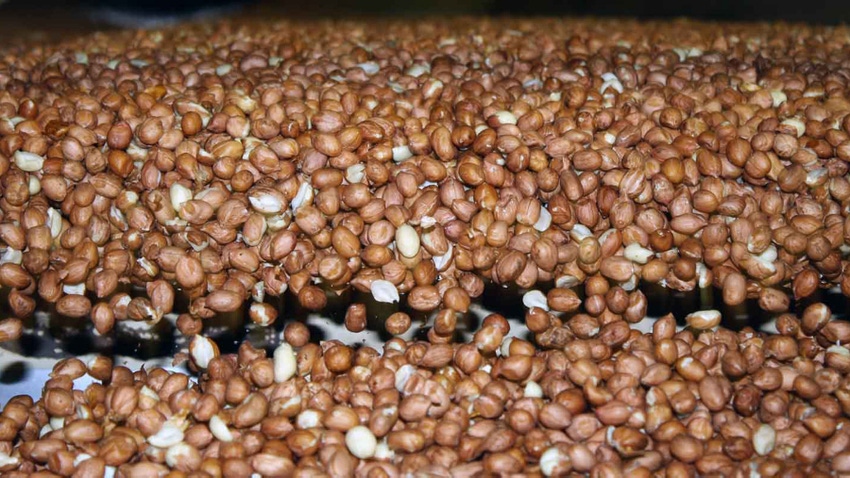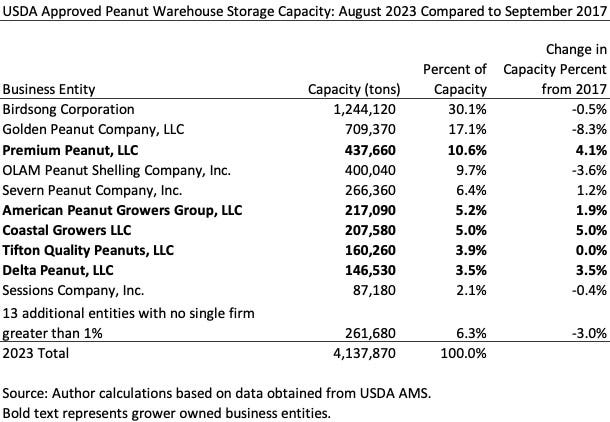August 8, 2023

At a Glance
- Grower-owned peanut shellers provide a share in the downstream profit that is otherwise not passed through to the farmer.
By Adam Rabinowitz & Festus Attah, Auburn University
Peanut farmers in the post-quota era have historically had limited marketing opportunities. There is no futures market for peanuts, and the market is defined as relatively thin with a high concentration by two major buyers, Golden Peanut Company and Birdsong Corporation.
In economics, this is known as an oligopsony – a market that is dominated by a very few disproportionately large buyers. Sellers in an oligopsony market have little ability to influence the price they receive for their product. Here the seller is the peanut farmer looking to market their crop who often must just accept what shellers will pay.
The agricultural cooperative model allows farmers to work together to sell their product, achieve greater bargaining power, and provide profit sharing opportunities. Grower-owned peanut shellers provide member peanut farmers an opportunity to share in the downstream profit that is otherwise not passed through to the farmer.
Over the past decade, there has been considerable growth in grower-owned peanut shellers. A few examples include Premium Peanut that was formed in 2014 in Georgia, Delta Peanut that was founded in 2018 in Arkansas, and Coastal Growers that came together in 2021 in Alabama.
The table below shows the current USDA approved peanut warehouse storage capacity in the United States. While the top two firms control 47.2% of the storage capacity, we see five grower-owned shellers (listed in bold) that combine for 28.3% of the storage capacity.

Furthermore, that share of grower-owned capacity has more than doubled since 2017 from both increases by existing grower-owned shellers and the entry of Delta Peanut and Coastal Growers. While storage capacity is not fully reflective of market share, it represents a reasonable approximation and is indicative of marketing opportunities that farmers are leveraging through agricultural cooperatives.
Source: Southern Ag Today, a collaboration of economists from 13 Southern universities.
Read more about:
Peanut ShellerYou May Also Like




